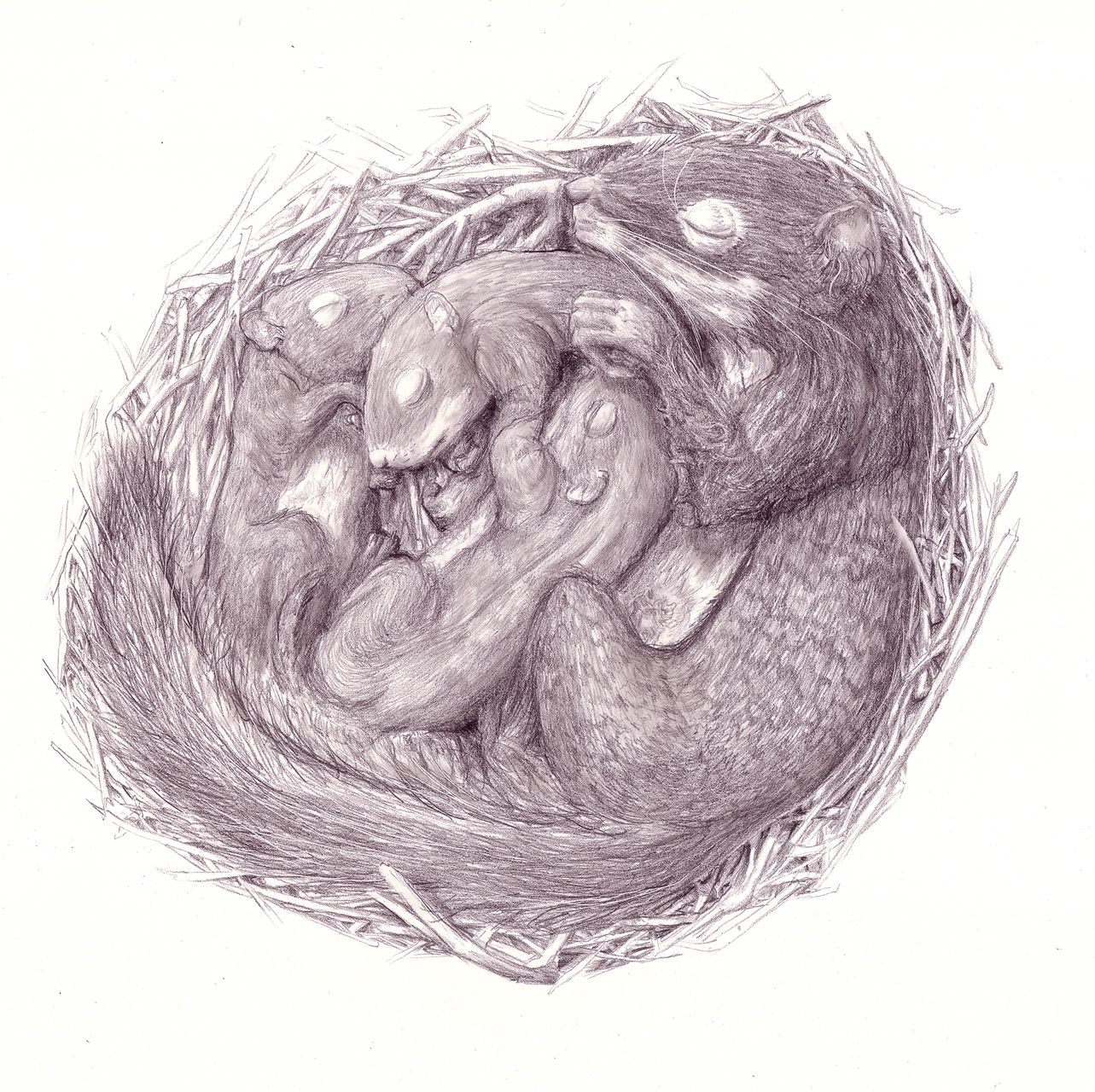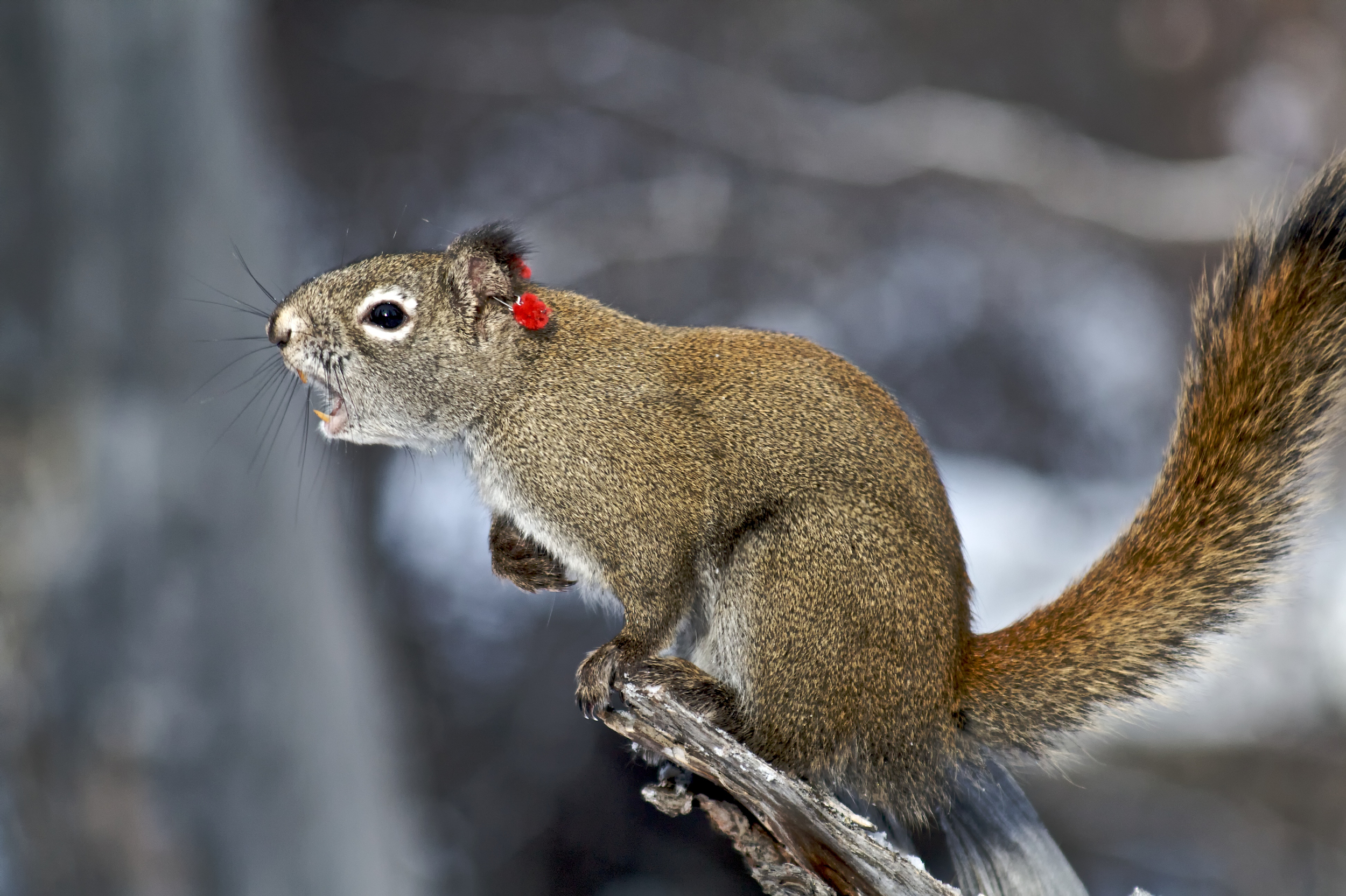



Evolutionary Ecology
Department of Ecology and Evolutionary Biology
University of Colorado Boulder
Evolutionary Ecology
Department of Ecology and Evolutionary Biology
University of Colorado Boulder
@MCADAM_LAB
Research in our lab investigates the process of adaptation. Natural selection and evolution occur within an ecological context, so a major goal of our work is to examine the ecological circumstances associated with short-term evolutionary changes. We are currently particularly interested in maternal effects and other indirect effects of the social environment on adaptation.

Research
Studying the ecology of evolutionary change
Research
Studying the ecology of evolutionary change
Maternal Effects
Mothers make many important contributions to the development of their offspring. Maternal behaviour can have important effects on offspring development, physiology and behaviour. Mothers can also use environmental cues to adjust offspring attributes to match the selective environment that offspring will experience before the offspring experience the environment directly. Finally, maternal effects on offspring can themselves be genetically based. In this case, maternal genes can contribute to the evolutionary dynamics of offspring traits. These indirect genetic contributions to evolutionary change can not only affect the rate of evolution but they can also introduce evolutionary time lags in which the rate of evolution is also affected by selection in the previous generation. Our lab is interested in all three of these important aspects of maternal behaviour.
RESPONSES TO SOCIAL INFORMATION
Despite the defence of exclusive territories and very infrequent physical interactions with neighbours (Dantzer et al. 2012), red squirrels communicate regularly with their neighbours through territorial vocalizations, called rattles. Acoustic information contained in the rattles of neighbours, therefore, has the potential to provide important information about the local social neighbourhood without direct physical interactions. Red squirrels, therefore, have a much richer social environment than we would expect from this ‘asocial’ species. The fact that most social information is communicated through territorial vocalizations, which we can quantify acoustically, manipulate and broadcast experimentally in playbacks, provides a powerful yet simple wild system for exploring the ability of individuals to adaptively respond to changes in their social environment.
Local Adaptation in an Invasive Cladoceran
The spiny water flea (Bythotrephes longimanus) invaded the Laurentian Great Lakes about 30 years ago and has since spread to many inland lakes. The ecological and ecosystem impacts of this invasion have been widespread. Our lab is interested in how the morphology of the tail spine has evolved in response to native fish predators. We have measured seasonal and spatial variation in natural selection and used common-garden experiments to measure heritability, maternal effects and to test for evidence of local adaptation.
Aggression and Social Context in Seasonal Drosophila
We have also recently started to use an experimental seasonal Drosophila model in collaboration with Dr. Ryan Norris (Betini et al. 2013). Former postdoc Gustavo Betini developed the system with Norris and studied how balancing selection across seasons causes multigenerational population cycles. PhD student, Julia Kilgour is currently investigating how aggression and its fitness consequences are affected by social context when resources are scarce.

Prospective Students
Prospective Students
Join the lab
If you are interested in joining our lab in the Department of Ecology and Evolutionary Biology at the University of Colorado Boulder as a graduate student or postdoc please read through the descriptions of our ongoing research and some of our recent publications. If these questions and approaches interest you, then send me an e-mail with a statement of the kinds of questions that you would be interested in pursuing and a brief overview of your previous academic and research experiences, as well as a copy of your CV and unofficial transcript.



